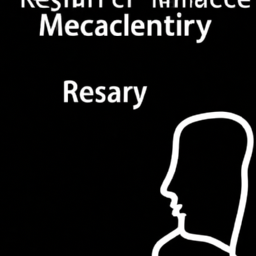Public statements about social injustices can be a powerful way to express solidarity and commitment to change. However, for Human Resources professionals, these statements should not be taken lightly. Research shows that such statements can have a negative effect in the workplace due to a variety of reasons. This blog post will discuss the pros and cons of making public statements about social injustices, and provide tips for HR professionals on how to make effective statements.
The Pros of Making Public Statements About Social Injustices
Making public statements about social injustices can be a powerful way to demonstrate commitment to social justice and to show solidarity with affected individuals. It can also be an effective way to respond in a timely manner to events, and to make a statement of support that reaches a wide audience. For example, when a company makes a statement about a tragedy, it can be seen as a signal of their commitment to the issue, and can help to assure stakeholders that they are taking the issue seriously.
Furthermore, statements can be used to affirm the values of the organization and to communicate the organization’s position on the issue. This can help to create a positive work environment and a sense of belonging for employees, which is essential for effective HR management.
The Cons of Making Public Statements About Social Injustices
Unfortunately, research shows that public statements about social injustices can also have a negative effect in the workplace. This is due to a variety of reasons, including the fact that such statements can be seen as too political for some, and can be interpreted as taking a stance on an issue that may not be shared by all employees. Additionally, public statements can be seen as a way of attempting to silence dissent, and some employees may feel that their opinions are not being respected when a company releases a statement.
Furthermore, public statements can be seen as insincere and can be viewed as a way to avoid taking real action. This can lead to employees losing faith in the company’s commitment to social justice, and can lead to a lack of trust in the leadership. Finally, public statements can be seen as a way to capitalize on social issues for marketing purposes, which can be seen as exploitative and can damage the company’s reputation.
Tips for HR Professionals on How to Make Effective Statements
Given the potential risks associated with making public statements about social injustices, it is important for HR professionals to ensure that any statements they make are effective and respectful. Here are some tips for HR professionals on how to make effective statements:
• Ensure that the statement is well-thought-out and carefully worded. It is important to make sure that the statement is not too political, and that it reflects the values of the organization.
• Make sure that the statement is timely and relevant to the issue at hand. It is important to respond quickly to events, and to make sure that the statement reflects the current situation.
• Make sure that the statement is authentic and sincere. It is important that the statement reflects the organization’s commitment to social justice, and is not seen as a way to capitalize on the issue.
• Make sure that the statement is respectful of all viewpoints. It is important to ensure that the statement is inclusive and does not attempt to silence dissent.
• Make sure that the statement is followed up with real action. It is important to ensure that the statement is not just a token gesture, and that the organization is taking meaningful action to address the issue.
Finally, it is important to remember that public statements about social injustices have the potential to have a powerful impact, both positive and negative. It is important for HR professionals to ensure that any statements they make are carefully considered, and that they are taking into account potential risks and rewards. By following the tips outlined above, HR professionals can ensure that their statements are effective and respectful, and that they are making a meaningful contribution to the cause of social justice.



